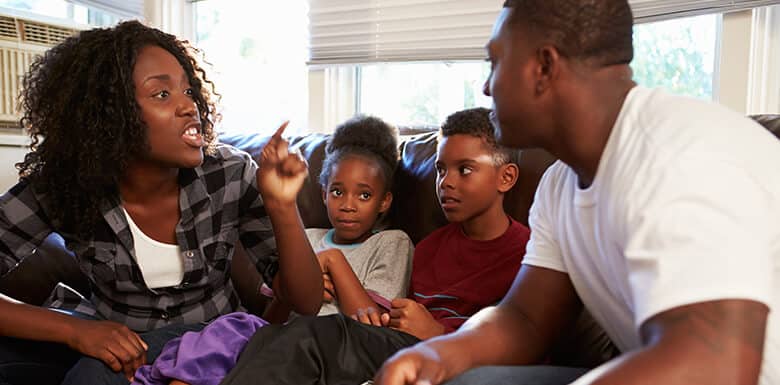
Written by Jonathan Breeden
Good communication is one of the most important parts of raising children. It’s essential that you, as a parent, can communicate with your child. But it’s equally vital that you and the child’s other parent communicate well also.
That’s true regardless of whether you are divorced, separated, or still together. Sadly, many divorces and separations are the results of poor communication. So, if that is why you parted ways in the first place, how can you hope to improve communication after the fact?
In our more than 20 years of handling family law, divorce, and child custody issues in North Carolina, the Breeden Law Office has some tips to help separated parents communicate better.
And if you need help with your child custody case, call us at (919) 661-4970.
Like it or not, you and your co-parent are going to have to interact sometimes. That’s regardless of the custodial schedule or any other details. You will simply cross paths from time to time.
But communication doesn’t have to be complicated. Even if you don’t like each other, you and your child’s other parent can communicate with these five tips.
If you’re like most people who have broken up, you may argue with your ex a lot. But it’s best to save the arguments for when the kids aren’t around.
Instead of arguing, if something is bothering you, state it clearly and without too much emotion. Show your kids that it’s okay to disagree, but it’s never okay to yell and scream.
Your child is going to have disagreements with your parenting partner. To boost communication with your parenting partner, don’t use these incidents as an opportunity to stick it to your ex. That means you shouldn’t automatically side with your child against your ex when they disagree.
Often, the child is only trying to get a rise out of the other parent. And almost always, you are not getting the whole story. It’s no different than if you were still living together and you were there when the incident that led to the discipline arose. You need to speak with the other parent in private to get the complete picture and act accordingly.
Call it bad-mouthing, cutting down, ridiculing, or making fun. Whatever you call it, don’t do it in front of the kids – if at all. This sets a bad example and sets the stage for the other parent to do the same thing to you. That creates a toxic environment for your children to grow up in.
Because you want to avoid your ex as much as possible, you may be tempted to use your kids as messengers to communicate with your co-parent. In almost all cases, this is a bad idea.
Not only can information get lost in translation, but this tells your child that you are not capable of good communication. If you never learned how to communicate well, why should your child? To prevent this issue, communicate directly with your partner whenever possible.
Especially if you have ongoing disputes with your ex, you need to communicate in writing whenever possible. A text message or email creates a record of what you said – no more he said, she said. That way, what you said and intended to say is clear. There’s no miscommunication about what you did or didn’t say. That means there is little room for misunderstanding and, therefore, unnecessary arguments.
Communication is essential in raising children. We know it’s difficult, but you should work hard every day to communicate with your parenting partner. Just think of it as one more thing you are doing to give your kids a great life in the post-relationship environment.
Whether you are getting a divorce or trying to reach a fair custody agreement with your ex, the North Carolina family lawyers at Breeden Law Office can help.
Call (919) 661-4970 or fill out our online contact form today.